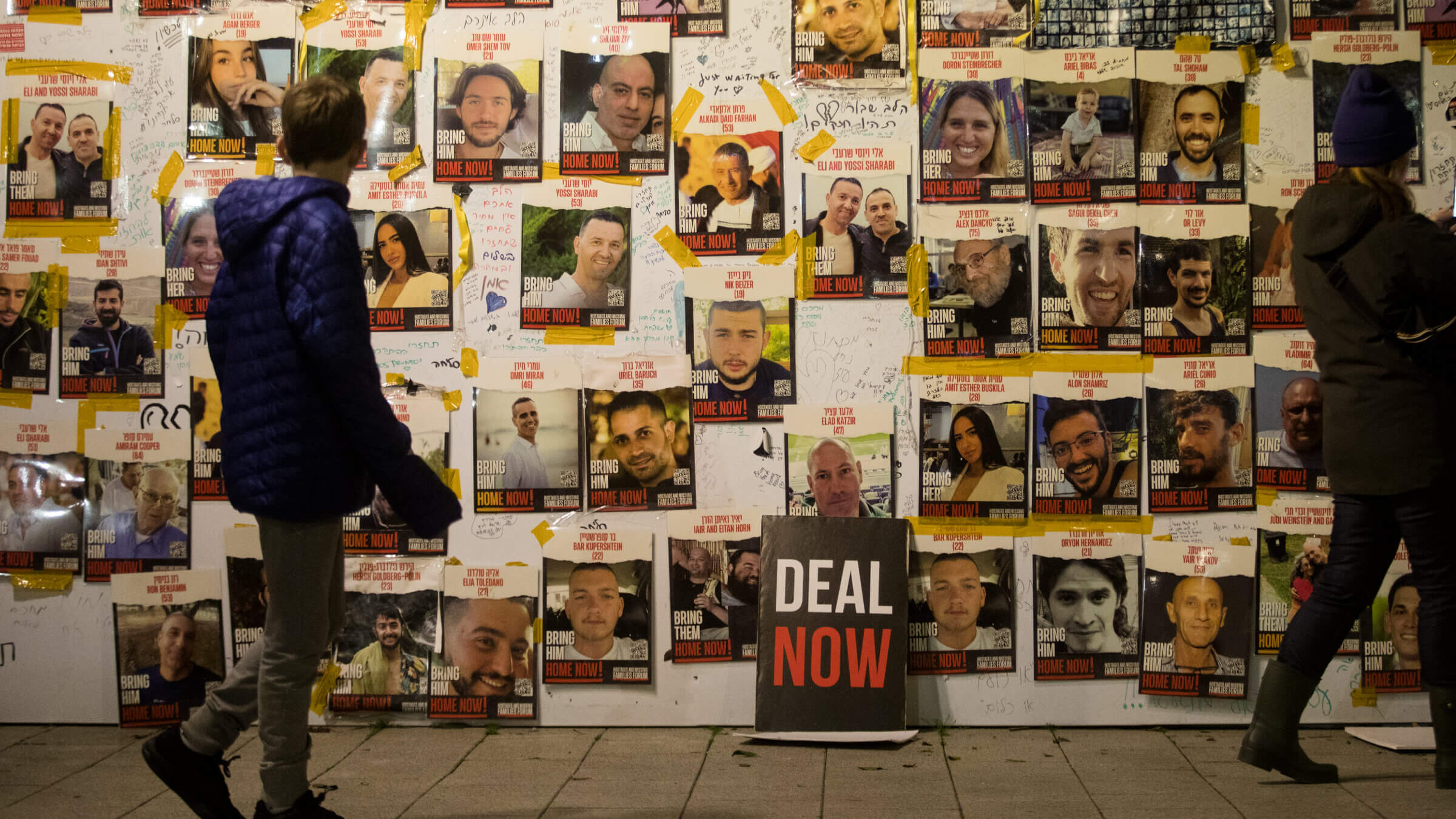Hopes rise for deal to free all hostages in exchange for 2-month cease-fire
President Biden is sending his CIA director to the Middle East Sunday to help seal the deal between Israel and Hamas

People walk by a wall with photos of hostages held in the Gaza Strip by Hamas during a rally calling for release of all hostages on Jan. 27 in Tel Aviv. Photo by Amir Levy/Getty Images
Negotiators are set to meet in Paris today to iron out the details for a roughly two-month cease-fire in the Israel-Hamas war in exchange for the release of more than 100 hostages still being held in Gaza.
News of the possible deal was first reported by The New York Times. U.S. officials, who are helping broker the deal with Egypt and Qatar, told The Times they are cautiously optimistic that a deal could be signed within the next two weeks.
“A hostage deal is central to establishing a prolonged humanitarian pause in the fighting and ensure additional life saving humanitarian assistance reaches civilians in need throughout Gaza,” the White House said in a statement Friday night.
The negotiations come after more than 110 days of intense war in Gaza after thousands of Hamas terrorists invaded Israel on Oct. 7, slaughtering an estimated 1,100 people and abducting 240. The Gaza Health Ministry says more than 25,000 residents of the Palestinian coastal enclave have been killed by Israeli airstrikes and ground battles since.
International officials say nearly all of Gaza’s 2.2 million people have been displaced from their homes, and half of the strip’s buildings destroyed or damaged. More than 300,000 Israeli reservists have been deployed, and more than 200 soldiers killed in the war.
During a week-long cease-fire in November, around 110 hostages were released. More than 130 hostages are still in captivity; Israel military officials estimate that about two dozen of them are dead.
The Times article said the deal would be broken into two parts. Women, children, elderly and wounded hostages would be freed in the first 30 days. Then, negotiations would resume around the release of civilian men and Israeli soldiers. It was unclear how many Palestinian prisoners might be exchanged for the hostages — in November, it was 240 — and how humanitarian aid would flow into Gaza during the truce.
The temporary cease-fire would also allow for diplomatic talks to help prevent a return to the intense fighting that started on Oct. 7.













